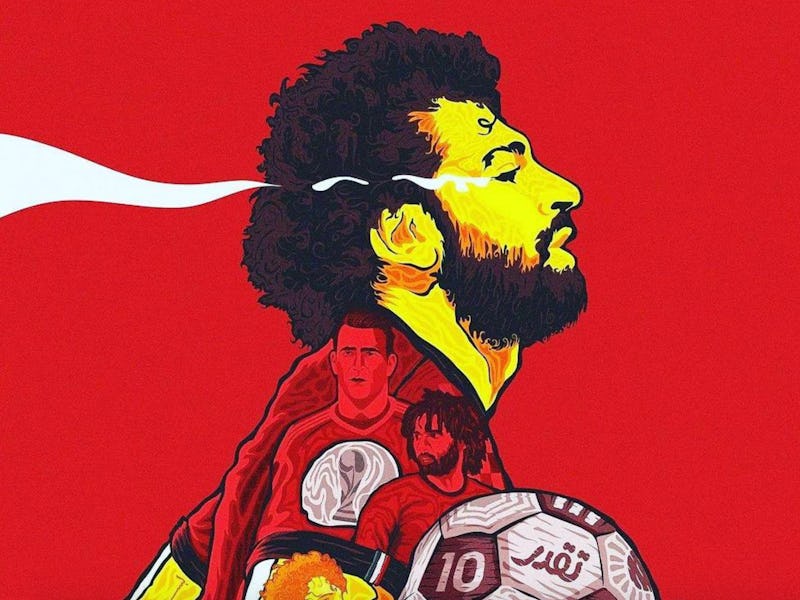Who Wins Egypt vs. Uruguay? A.I. Predicts the World Cup Match
Can Egypt upset a powerful South American side? An internet hive-mind has made its prediction.

There was exciting news on Thursday for an entire country. Its people love their best athlete to such a high degree that more than 1 million of them voted for him in the recent presidential election; their favorite son received so many votes that he would have come in second — if he was a qualified candidate.
Imagine if LeBron got as many votes as Hillary, and you’ll know how much the people of Egypt love Mohammed Salah. And when they learned their beloved striker — who plays his club football at Liverpool FC in England — would be healthy enough to play in Egypt’s first World Cup match against Uruguay on Friday, there was elation. Salah had been thrown to the ground by Real Madrid defender Sergio Ramos during the Champions League Final held three weeks ago, badly injuring his shoulder. His comeback is aggressive.
Salah is lowly Egypt’s top scorer, and one of the best players in the world, so to have him back means everything, as the side faces South American powerhouse Uruguay (The game airs at 8 a.m. Eastern in the United States.)
To predict the winner of Egypt vs. Uruguay on Friday, a group of 38 soccer experts sitting at computers across the United States and Europe used machine-learning technology to form a hive mind and collectively project the outcome.
The San Francisco-based technology firm Unanimous A.I. developed a basic web-based interface that does something remarkable: It forces people to work as a group, using the power of collective human intelligence. Creator Louis Rosenberg, Ph.D., thinks his software can go toe-to-toe with the intelligence of neural networks being developed by Google, Apple, IBM, and other major technology firms. (Rosenberg does have people on his side, though.)
To make a decision, each swarm participant logs in and controls a little golden magnet, sort of like a micro video game. Each person uses the magnet to drag a glass-looking puck toward an answer they think is the most likely outcome for each situation. Things get interesting when a user sees the puck being dragged by other members of the swarm; that seems to trigger a psychological response, and the user readjusts their decision. Within a matter of seconds, the swarm builds toward a consensus.
As the animation below shows, this week’s good news about Salah couldn’t sway a swarm of football fans to give Egypt the edge over Uruguay in Russia:
It’s sad news for Salah, and the World Cup is famous for generation-defining upsets, but Rosenberg believes in his technology, and its effectiveness has been borne out: Swarms have made correct predictions for the NCAA Tournament, the 2016 Kentucky Derby, and even the 2018 Oscars.
Mo Salah plays for Liverpool FC during the club season.
“I’m talking about forming a hive mind,” Rosenberg said in a TEDx Talk last fall. “Biologists call this ‘swarm intelligence’ and it’s a natural step in the evolution of most social species.
It’s a way of thinking used by honey bees, Rosenberg says. For example, a swarm of 10,000 bees that needs to find a new hive will send out a few hundred scouts to find a new site for a home. Individually, a honey bee has an impressive brain for an insect, but it can’t be expected to find a hive for 10,000 of its family members on its own. So the group of a few hundred bees, working together, picks the best possible location for its hive, and it does it an astounding 80 percent of the time, Rosenberg says.
The A.I. comes in to help smooth out the movement of the group and make its move toward a decision more graceful and efficient. Even the best A.I. needs a little real-world behavior to inform its decisions.
Salah and Egypt may fare better in the following matches, one against Russia, an objectively terrible side that still managed to defeat Saudi Arabia 5-0 in the opening game on Wednesday, and Saudi Arabia on June 25.
See also: The 2018 World Cup, Predicted by A.I.